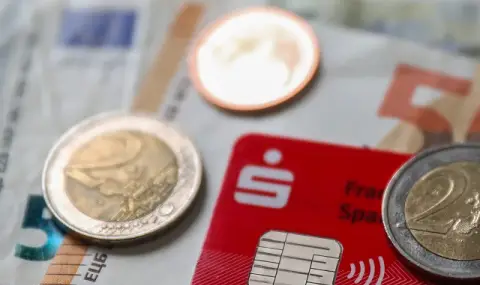The economy in the eurozone is stagnating - mainly due to Germany's weakness. Good news comes only from the southern part of the Community - from Portugal, Spain and Greece. What are the reasons?
Only a few years ago, Portugal, Italy, Spain and especially Greece were the main sources of problems for the European Union and the eurozone. But now the situation is different. "We from the South can help to cope with the common difficulties", Spanish Prime Minister Pedro Sanchez recently said at the World Economic Forum in Davos. He stressed the need to produce more clean energy to deal with the energy crisis following the start of a full-scale war in Ukraine. According to Sanchez, Spain, which is betting on solar energy, can become the "best world economy".
Germany is falling further and further behind
From a European perspective, however, the situation is not at all rosy - the eurozone is stagnating. In the last quarter of 2024, total GDP remained at the same level as in the fall, Eurostat said. Growth since the summer was only 0.4 percent.
According to many experts, the reason for this is Germany, where GDP shrank by 0.2 percent in the last quarter and in 2024 as a whole. "Germany is falling further and further behind", commented economist Alexander Kruger.
The largest economy in the eurozone is weakening, and once problematic countries are now developing rapidly. Can southern European countries become the locomotive of the European economic train? Economist Gabriel Felbermayr does not think this is possible. According to him, they are not strong enough economically. Felbermayr points out that Germany and France already account for more than half of the eurozone's GDP, and this industrialized "northern bloc" should also include Austria, Slovenia, Slovakia and the Netherlands. Countries that have not adopted the common European currency are also feeling the economic problems in the EU - for example, the Czech Republic and Poland, the expert points out.
What is Germany's problem?
What is it that makes the southern countries so strong and makes the others look weak? According to the former director of the Munich Ifo Institute, Hans-Werner Zinn, the explanation lies in both political decisions and external factors.
"In recent years, Germany has suffered greatly from the energy crisis, and it was caused both by the war and by the shortages it caused itself." Zinn criticizes the planned phase-out of fossil fuels and the shift to green energy sources. The expert points out that the chemical industry has suffered greatly from this, as has the automotive industry, which is important for Germany.
Felbermayr, for his part, notes that tourism and agriculture play a major role in the southern countries. The increased energy prices in Europe, the trade wars and the challenges associated with decarbonization simply affect the south less than the north. In addition, since 2010, southern European countries have also had lower inflation than the north. "This has helped their competitiveness", the expert points out.
And there is no light at the end of the tunnel. Commerzbank economist Jörg Kremer believes that the upward trend is weak. "The deep structural crisis in industry and Trump's threats to increase tariffs are dragging everything down", says Kremer.
The crisis is not short-term, but structural
"So far, there are no signs of recovery", says Sebastian Dullien, director of the Institute for Macroeconomics. According to him, there are several reasons for the stagnation of the German economy - such as China's aggressive policy, which is harmful to exports, and the European Central Bank's policy of high interest rates.
There is hope that awareness of the problems is the first step towards achieving improvement. German Economy Minister Robert Habeck said at the World Economic Forum in Davos: "We seem to have missed the fact that the crisis is not short-term, but structural". This is particularly evident for industry, which is struggling with high electricity prices. Foreign trade, which is important for Germany, is weakening, and consumer sentiment is deteriorating. "We need to rethink our business model," Habeck insisted.
What is needed?
Nevertheless, the European Commission expects a slight economic recovery in the eurozone and growth of 1.3 percent in 2025. The ECB, which experts say is on the verge of cutting interest rates, is likely to take further steps in this direction this year.
Gabriel Felbermayr does not think that the current balance of power between the North and the South is unusual: "Here and there the industrialized North is ahead, then the South overtakes it thanks to its developed services. This is no different in other large economies, such as the United States".
It is crucial that "the North continues with the necessary reforms to increase competitiveness, and that the South does not relax. It is also important that the internal market, which serves as a balance between the individual regions, is strengthened again," says Felbermayr.
